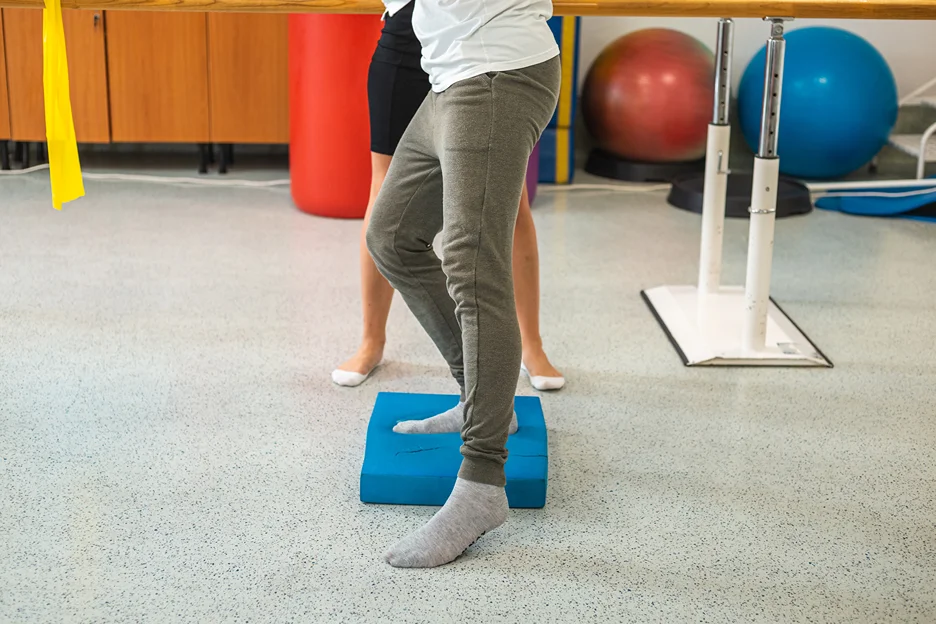Understanding the Relationship Between Neck Pain and Dizziness
Experiencing neck pain and dizziness concurrently can be disruptive, inconvenient, and downright miserable. But why do these two symptoms so often occur together? What is the connection between neck pain and sensations of lightheadedness or vertigo?
Anatomy and Physiology Involved
The Cervical Spine and Balance
To understand why neck pain is associated with dizziness, we must first consider the anatomy of the cervical spine, or neck region. This area consists of seven vertebrae that support the weight of the head and allow flexibility for turning, tilting, and rotating.
The cervical spine plays a crucial role in balance and spatial orientation. Information about the position and movement of the neck is constantly being relayed to the brain. Disruption in this area can lead to impaired balance and coordination.
The Vestibular System
The vestibular system is made up of structures within the inner ear that detect position changes and motion. This input works together with vision and proprioception (our sense of body position) to maintain balance and postural control. Issues with the vestibular system are a common cause of dizziness.
Proprioceptive Input from the Neck
There are numerous proprioceptive receptors in the cervical spine muscles, joint capsules, and ligaments. They send signals about muscle contraction and head positioning up to the brain. This “6th sense” of proprioception is a key component of balance, even when our eyes are closed.
Cervical Vertigo: The Link Between Neck Pain and Dizziness
The term “cervical vertigo” refers specifically to dizziness caused by neck problems, often neck pain.
If there is disruption to the cervical spine structures involved in proprioception, it can lead to confused signals getting sent to the brain about the body’s orientation in space.
This mismatch between the vestibular, visual, and cervical proprioceptive input is interpreted by the brain as spinning, tilting, swaying, or unsteadiness.
The dizziness may worsen with certain head positions or movements. Cervical vertigo is distinct from vertigo stemming from inner ear disorders like benign paroxysmal positional vertigo (BPPV).
Common Causes of Neck Pain Leading to Dizziness
There are a variety of neck conditions that may contribute to symptoms of lightheadedness, imbalance, and vertigo.
Cervical Spondylosis
This progressive age-related degeneration leads to osteophyte formation, disc deterioration, and other changes that impact cervical alignment and mobility. It can affect proprioceptive signals.
Degenerative Disc Disease
As intervertebral discs degenerate, inflammation, narrowed space, and vertebral instability can result. This often compresses cervical nerve roots, disrupting sensory signals.
Whiplash and Neck Injuries
Trauma like whiplash that strains the muscles and ligaments of the cervical spine can injure intervertebral joints, cervical discs, and vertebrae. This leads to impaired proprioceptive input.
Neck Pain from Inflammation
Inflammation in cervical muscles, joints, nerves, or discs from infections, arthritis, or autoimmune issues can impair proprioception and is often associated with neck pain and dizziness.
Diagnostic Approach
Since there are various underlying causes of cervical vertigo, a clear diagnosis from a medical professional is important. They will examine the neck and assess the range of motion, pain, and alignment. Your history of symptoms will be reviewed.
Possible diagnostic tests include:
- Cervical spine MRI to assess discs, vertebrae, and soft tissues
- CT scan visualizing cervical structures
- X-rays revealing bone spurs or alignment issues
- Balance assessments like the Romberg test
- Head-thrust test checking the vestibular-ocular reflex
- Blood tests to identify inflammation or infection
Treatment Modalities

Physical Therapy
PT aims to improve cervical mobility, strength, and proprioception. Exercises may include range of motion, stabilization, and balance training. Manual therapy can help decrease pain. PT is crucial for recovery.
Vestibular Rehabilitation
Customized exercises focus on promoting gaze stability, balance reactions, and habituation to dizziness triggers through controlled exposure. This is often overseen by a physical therapist.
Manual Manipulation
Spinal adjustments and mobilization techniques performed by chiropractors or other providers can improve joint mobility and reduce neck pain. However, the benefits of dizziness are debated.
Medications
Muscle relaxants, NSAIDs, or corticosteroid injections may help alleviate inflammatory neck pain. Antiemetics can provide relief from vertigo-related nausea and vomiting.
Surgery
This may be warranted for serious neck injuries, spinal cord compression, or nerve root impingement unresponsive to conservative measures. Potential procedures include cervical fusion or disc replacement.
Prevention and Long-Term Management
While not every case of neck pain and dizziness can be avoided, certain proactive measures are recommended for reducing risk and recurrence.
Proper Posture and Ergonomics
Avoiding prolonged poor head and neck posture when working at a desk or computer can help prevent muscle strain and pain. Adjustments like monitor height may be needed.
Neck Strengthening and ROM Exercises
Isometric and range of motion exercises that improve cervical flexibility and stability can be protective. However, check with a PT before starting.
Activity Modification
Heavy lifting, contact sports, or other jarring activities should be avoided to prevent strain or neck injury. Take frequent breaks if you have a sedentary job.
FAQs: Neck Pain and Dizziness
What is the connection between neck pain and dizziness?
Neck pain and dizziness often occur together due to issues in the cervical spine. Conditions like cervical vertigo can result from neck disorders or injuries, causing both neck pain and a loss of balance.
How does the cervical spine play a role in this?
The cervical spine, or the neck region, has a direct relationship with our balance and head movements. Any injury or dysfunction in this area can disrupt the proprioceptive input, leading to symptoms like dizziness or a sensation of spinning.
Are there specific neck disorders that lead to dizziness?
Yes, cervical vertigo and degenerative disc disease in the cervical spine can cause dizziness. Whiplash, a common neck injury, can also result in both neck pain and dizziness.
How is this condition diagnosed and treated?
Accurate diagnosis often involves a combination of clinical evaluations, imaging tests like MRI, and balance exercises. Treatment options include physical therapy, manual therapy, and in some cases, medications or surgery.
Can neck pain and dizziness be prevented?
Maintaining proper posture, regular neck exercises, and seeking medical attention after any neck injury can help reduce the risk. It’s essential to address neck stiffness or pain early on to prevent complications.
Conclusion
Understanding the close relationship between neck pain and dizziness is the foundation for proper diagnosis and management of cervical vertigo and related disorders.
Paying attention to neck health, maintaining good posture, seeking prompt treatment for injuries, and following doctor recommendations can help minimize disruption from these often reoccurring symptoms.
Find Clarity with Kaly: Address Your Neck Pain & Dizziness Today.

Dizziness and neck pain often occur together due to many possible underlying conditions – cervical vertigo, whiplash injuries, degenerative disc disease, arthritis, and more.
If you’re experiencing these uncomfortable symptoms, don’t wait. Kaly provides easy access to experienced ENT physicians, neurologists, chiropractors, and other specialists who can properly evaluate your neck issues.
They’ll review your history, order imaging or tests if needed, accurately diagnose the cause, and create a treatment plan tailored to your situation. Take control of your health and get relief from neck pain and dizziness.
